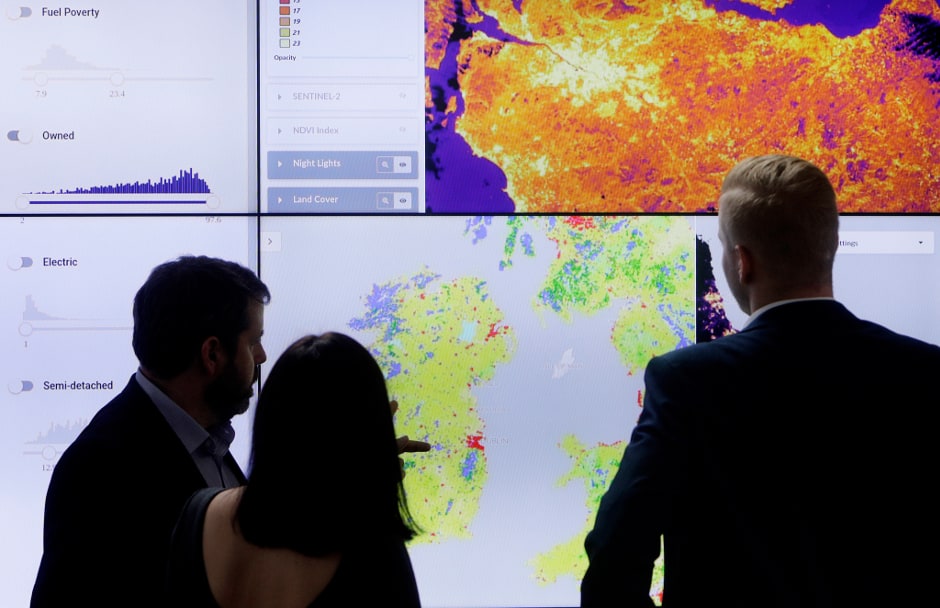
The project, which involves E.ON, the European Space Agency (ESA) and Earth observation specialist Astrosat, will use near real-time and archived data gathered from orbiting satellites – including optical sources, thermal-infrared for heat mapping and air quality and pollution tracking. This will be combined with Astrosat’s ThermCERT software to address issues including housing condition and insulation, and air quality.
When cross-matched with existing housing or data on vulnerable customers, the platform is expected to provide local authorities with a street-level view of where improvements are most needed, allowing them to better target their approaches to upgrading housing stock, optimising energy efficiency installations, and improving air quality.
“In a world where data is routinely generated before a problem or application is known to exist, we are able to intelligently cross-correlate and fuse that data from in-situ satellites,” said Fraser Hamilton, COO at Astrosat. “This solution will greatly enhance E.ON’s ability to identify communities in need of assistance.”
According to E.ON, energy efficiency programmes often rely on door-to-door visits or doorstep mailings in order to talk directly to customers and analyse their needs. The large amount of data which can be captured using satellite technology means a bigger and more accurate picture can be created quickly, which improves the success rate of installation works.
During the project, E.ON and Astrosat, with the support of ESA, will develop the system for around 18 months, including a city-scale trial. E.ON’s reach across Europe could lead to the potential roll out the project across other countries once the UK trial has finished.
Commenting on the project, Michael Lewis, E.ON’s UK chief executive said: “Delivered on the doorstep but driven by big data gathered from Earth orbit, our work with Astrosat, in collaboration with ESA, is about using the almost endless possibilities of space to deliver real benefits on the ground.
“This…project is about harnessing the power of space, alongside our experience working with local authorities and delivering real change in terms of fuel poverty and carbon emissions, to help reduce heat loss and unnecessary energy expenditure in regional areas across the UK.”
“We have a two-pronged approach to supporting the green energy revolution,” said Nick Appleyard, head of downstream applications at the European Space Agency said. “Initiatives like ThermCERT show how space assets can help to reduce costs and improve energy efficiency in existing neighbourhoods. In parallel, we are open to proposals for space services that help to create Green Neighbourhoods by improving their initial design.”
In its first iteration, the platform is intended to help locate and provide targeted support for the most vulnerable individuals in society. Future iterations will leverage the growing wealth of high resolution commercial data that becoming available. E.ON and Astrosat expect the product to be ready for use in a UK pilot by the third quarter of 2019.





Virgin Atlantic’s Flight100 saved 95 tonnes of CO2 in first SAF flight
Good comment. I think these reports are different from many others , in that they were prepared outside the government and the issues, they raised, of...